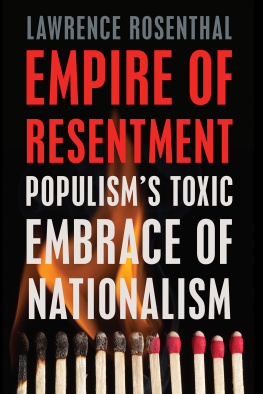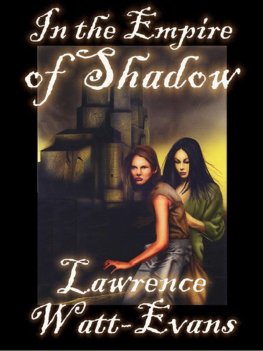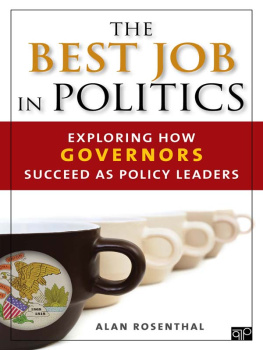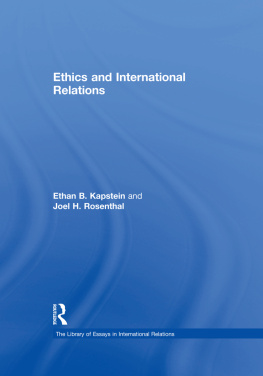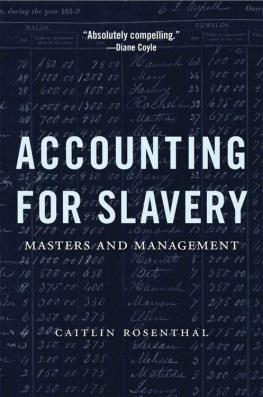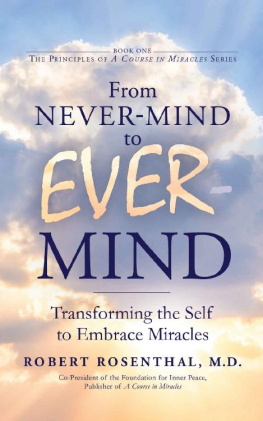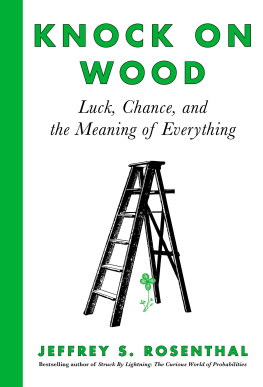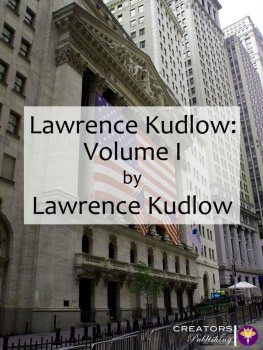Lawrence Rosenthal - Empire of Resentment
Here you can read online Lawrence Rosenthal - Empire of Resentment full text of the book (entire story) in english for free. Download pdf and epub, get meaning, cover and reviews about this ebook. year: 2020, publisher: The New Press, genre: Politics. Description of the work, (preface) as well as reviews are available. Best literature library LitArk.com created for fans of good reading and offers a wide selection of genres:
Romance novel
Science fiction
Adventure
Detective
Science
History
Home and family
Prose
Art
Politics
Computer
Non-fiction
Religion
Business
Children
Humor
Choose a favorite category and find really read worthwhile books. Enjoy immersion in the world of imagination, feel the emotions of the characters or learn something new for yourself, make an fascinating discovery.
- Book:Empire of Resentment
- Author:
- Publisher:The New Press
- Genre:
- Year:2020
- Rating:5 / 5
- Favourites:Add to favourites
- Your mark:
- 100
- 1
- 2
- 3
- 4
- 5
Empire of Resentment: summary, description and annotation
We offer to read an annotation, description, summary or preface (depends on what the author of the book "Empire of Resentment" wrote himself). If you haven't found the necessary information about the book — write in the comments, we will try to find it.
Empire of Resentment — read online for free the complete book (whole text) full work
Below is the text of the book, divided by pages. System saving the place of the last page read, allows you to conveniently read the book "Empire of Resentment" online for free, without having to search again every time where you left off. Put a bookmark, and you can go to the page where you finished reading at any time.
Font size:
Interval:
Bookmark:

EMPIRE OF RESENTMENT
Also by Lawrence Rosenthal
The New Nationalism and the First World War
(co-edited with Vesna Rodic)
Steep: The Precipitous Rise of the Tea Party
(co-edited with Christine Trost)
Empire of
RESENTMENT
POPULISMS TOXIC EMBRACE OF NATIONALISM
LAWRENCE ROSENTHAL

CONTENTS
To Sasha and Theo
and to their generation
EMPIRE OF RESENTMENT
The Ideological Migration of 2016
In a celebrated exchange during one of their presidential debates, Hillary Clinton sought to distinguish herself from Donald Trump in terms of her greater readiness to take on the job of the nations chief executive. I prepared to be president, she stated, and her implication was clear: Trump had never prepared himself to be president.
Clinton was certainly right. Trump was expecting to act as president as he had acquitted himself throughout his life in business: he was going to improvise. But, like many other observers, she missed the fact that Trump had prepared himself for his run for the presidency.
How?
Trump had immersed himself in right-wing media. This included Fox News on cable television, which Trump personally followed on a daily, if not hourly, basis. With the help of aides his practice included attending to talk radio personalitiesthe likes of Rush Limbaugh, Michael Savage, and Sean Hannitymonitoring Tea Party websites and discussions, and following right-wing news sites like the Drudge Report and Breitbart News.
The substance of Trumps presidential campaign, the issues he thundered about in rallies and debates, was the direct result of what he found in these right-wing media.
What he found there was a populist revolt.
This revolt was congenial to him in terms of his own politics and, even more so, in terms of his vulgar, over-the-top style. Donald Trump won the 2016 election by convincing Americas right-wing populists to migrate ideologicallyfrom the Tea Partys free-market fundamentalism to Trumps anti-immigrant, America-First nationalism.
This book is the story of that migration.
It is also the story of where it might be heading.
Right populisms migration to Trumpian nationalism ignited momentous political changes. As its predominant voting bloc, the right populists migration exerted a gravitational pull on the (rest of) the Republican Party. From a starting point that was at once ideologically opposed and morally aghast, the Republican establishment and mainstream Republican voters moved toward Trumpian nationalism and unflinching defense of Trumps scofflaw approach to American political traditions and the limitations of the office of the presidency. Ideologically, the Republican Party came not only to resemble the anti-immigrant parties that have existed in Western Europe for a couple of decades, and which themselves had flourished since the European refugee crisis of 2015, but to have leapfrogged its Western predecessors into becoming the first such party to control a major Western democracy.
As Trumpian nationalism established itself as the novel ideological direction of one of Americas two major political parties, the tenor and substance of national political discourse in the United States mutated. Vulgarity, mockery and insults, combined with an overweening sensitivity to criticism, had pride of place in Donald Trumps presentation of himself as candidate and as presidentand these traits rallied a following that was primed with resentment toward his targets. Beyond the populists, voices long confined to the fringes of American political life now had a place in mainstream American debate. The alt-right, steeped in Americas historical currents of white supremacy, resonated with Trumps attacks on immigrants, and commanded a platform unseen at the national level for eighty years. Trumps winning the presidency gave these voices legitimacy. So too did the international illiberal zeitgeist, which had already set down roots in Eastern Europe and Asia, and was now setting liberal democracy back on its heels in the West. Donald Trumps electoral victory was a beacon for illiberalism internationally and at home he embodied the ages challenge to the liberal democracy Americans had taken for granted as their political patrimony.
Populism and Resentment
The populist revolt Trump discovered was less about the emergence of populism than its transformation in the Obama years.
Few topics have been bandied about as much in the past few years as populism. But too often populism is presented as a novelty emerging with the rise of Trumps anti-immigrant politics in the United States or anti-refugee movements in Europe. Populism was crowned Cambridge University Presss Word of the Year in 2017. But Cambridge defined the word simply by the populist concerns that roiled the globe in 2016:
What sets populism apart from all these other words is that it represents a phenomenon thats both truly local and truly global, as populations and their leaders across the world wrestle with issues of immigration and trade, resurgent nationalism, and economic discontent.
Yet on either side of the Atlantic populism has been alive and well since at least the end of the Cold War. The populist politics of Silvio Berlusconi, for example, had dominated Italian politics for almost a generation by 2010. In the United States, Tea Party populism had held sway in national politics throughout Barack Obamas presidency. But these were populisms whose ideological and policy concerns were not the same as the populist issues of 2016.
Emotion is the prime mover of populist politics. In general, the essence of populism is group resentment, powerfully felt, toward a perceived elite. From the populist point of view, these elites are understood to be corrupt, powerful, and ideologically suspect. In the United States, populism of the left has typically focused its resentment on financial elites. Populism of the right, on the other hand, focuses on cultural elitesHollywood, university professors, urban life, the mainstream media, and much more. The elitists right populists resent are un-American individuals and institutions that they regard as looking down on themthe people who, in their view, think they know better than they do and want to tell them how to run their lives. Both Tea Party voters and Trump voters have been acutely aware of the attitude in the liberal world that regards them as the backward, almost premodern, fraction of American society.
In political terms, the enduring object of right populist resentment is American liberalism. The dominant political figures are the Democratic Party and its client basethe takers, largely minorities, who support the party for its giveawaysplus the Democrats elite urban donors and voters, and the mainstream media, whose liberal bias has long been a certain conviction on the populist right. Resentment does not stop with the political positions the liberals stand for. Rather it is continuous with resentment on how those actors think and live their liveson the perceived culture of liberals lives. In French social theorist Pierre Bourdieus terms, the object of resentment is liberals cultural capital, and it is often expressed by attacking or ridiculing liberals symbolic goods. Lifestyle, finally, becomes indistinguishable from politics.
The Club for Growth is a free-market political-action committee that frequently supported Tea Party candidates. In 2004, the club ran a famous advertisement attacking presidential candidate Howard Dean. In the ad, a couple, white seniors, in front of their plainly nonurban housethis would turn out to be the core Tea Party demographicis asked by an announcer what they think of Deans tax policies. Notice how the couples political resentment elides effortlessly into cultural resentmentin this case, indignation largely about patterns of liberal consumption, what liberals eat and drink and drive and more:
Next pageFont size:
Interval:
Bookmark:
Similar books «Empire of Resentment»
Look at similar books to Empire of Resentment. We have selected literature similar in name and meaning in the hope of providing readers with more options to find new, interesting, not yet read works.
Discussion, reviews of the book Empire of Resentment and just readers' own opinions. Leave your comments, write what you think about the work, its meaning or the main characters. Specify what exactly you liked and what you didn't like, and why you think so.

